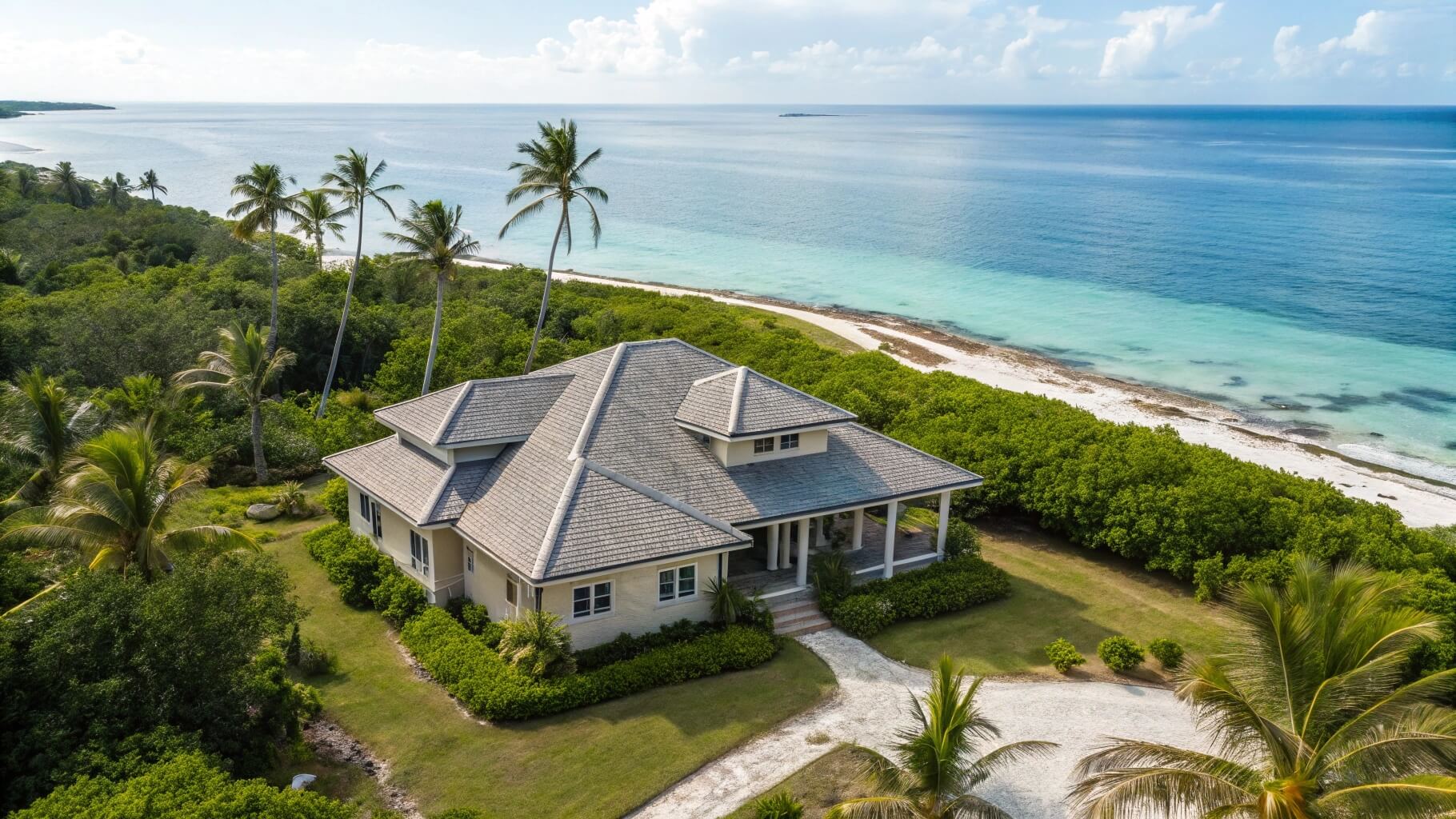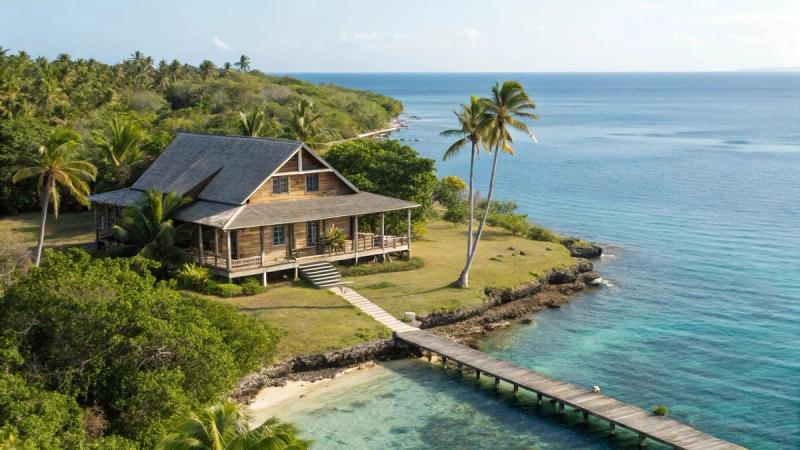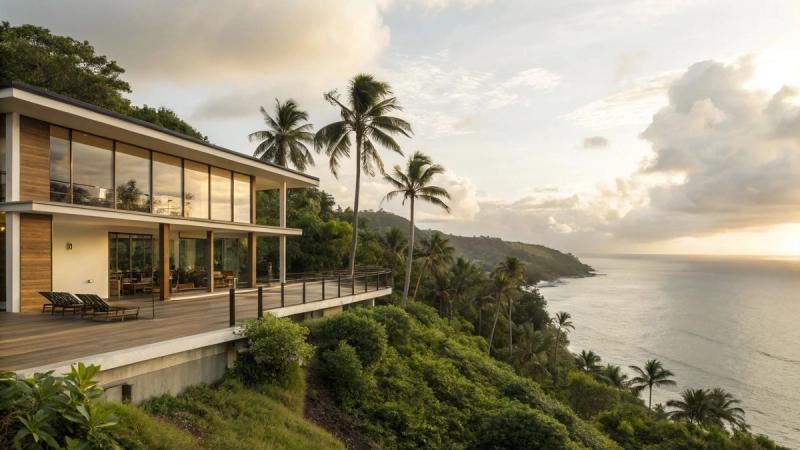
Good day! Owning a slice of paradise on an Australian island is the ideal, isn't it? Rising to the sound of waves, unending views of the sea, perhaps a resident wallaby hopping past your deck. From the tropical north of Queensland to the tough beauty of Tasmania, island life calls many Aussies.
However, before you exchange your daily commute for a ferry ride and make a commitment, understand that achieving this dream requires more than just wishful thinking. Purchasing real estate on an island presents special difficulties and considerations. Ignoring the important inspection processes can rapidly turn your perfect escape into an expensive headache. So let's start with the main items you really must look over before purchasing your island dream house.
Location, Accessibility, and the Components
To begin with, how straightforward is it to access and depart from your potential island paradise? Please consider the logistical issues.
- Transport Links: Does a consistent ferry schedule exist? Especially in changing seasons or weather, what is the schedule like, and how dependable is it? If it's more far-off, you might need your own boat or maybe investigate choices like a commercial boat rental for guests or for moving more bulky goods.
- Emergency & Amenities Access: Consider also access to emergency services. If necessary, how far are you from mainland businesses, hospitals, and universities?
- Property Positioning & Elements: Look closely at the particular spot on the island beyond just arriving. Does it show sensitivity to coastal erosion, storm surges, or king tides? Properties facing strong afternoon sun or the prevailing winds could need more maintenance.
- Microclimate Awareness: Crucial is knowledge of the microclimate of the island and the particular orientation of the property.
Structural Integrity Designed for the Coast?

Island homes fight the elements more fiercely than their counterparts on the mainland. In many Australian coastal areas, humidity can be high, salt spray is relentless and corrosive, and cyclones or severe storms are a reality. Here your inspection must be exhaustive.
- Building Materials: Find out from the building materials the house is constructed from whether they fit a marine environment.
- Corrosion Check: Search metal fittings, window frames, and roofing for corrosion.
- Water Handling: Make sure the downpipes, gutters, and roof can withstand a lot of rain.
- Foundations: Whether it's built on sand, rock, or stilts, make sure the foundations are strong and free of evidence of subsidence or damage.
- Pest Inspections: Remember pest inspections; termites love coastal timber, and other tropical critters may be seeking a home too.
- Code Compliance: Enquire about any required specific building codes or cyclone proofing and make sure they have been followed.
Essential Services: The Lifeblood of Your Island Home
Though off-grid living sounds ideal, the practicalities demand close inspection.
- Water Supply: The property gets its water from what source? Rainwater tanks are a common feature of many island homes. Check the filtration system size and state of condition. Does anyone know of a backup source or access to council mains—less common on smaller islands?
- Power Supply: Regarding power, what else is linked to the mainland grid, or does it depend on batteries and solar panels—perhaps with a generator backup? Know the capability, age, and maintenance needs of the system.
- Waste Management: And let's discuss waste; although not glamorous, it is rather important! Most island homes run septic systems. Make sure the system is approved, running as it should, and suitably sized for the house. When was it last serviced or pumped?
- Rectification Costs: Ignoring these basic needs can be quite costly and disruptive to correct.
Managing Guidelines, Expenses, and Finance
Purchasing on an island sometimes means negotiating additional layers of control.
- Council Regulations: Check the local council zoning for restrictions on renovations, extensions, or even temporary letting.
- Land Tenure: Find out if the property is leasehold or freehold; leasehold ownership (common on some Queensland islands, for example) comes with particular restrictions and costs.
- Insurance: Another major consideration is insurance; because of perceived hazards, including storm damage and access issues, premiums for island properties can be much higher.
- Maintenance Costs: Consider possibly more ongoing maintenance expenses as well; getting tradespeople and supplies to an island typically costs more.
- Financing: When thinking about finance, be aware that some lenders may view island properties differently, affecting home loan options or requiring larger deposits depending on access or resale issues.
- Due Diligence on Costs: Research all the related expenses beyond only the purchase price.
Accepting the Island Lifestyle: The Daily
At last, consider the pragmatics of daily existence.
- Connectivity: How good is the internet connectivity? Reliable internet is often non-negotiable in our linked society, even in paradise. Verify cell phone reception all around the property.
- Community & Supplies: If the island is inhabited, what kind of community exists there? Does a local store carry basics, or will every grocery run call for a visit to the mainland?
- Logistics: Please consider the logistics involved in having building supplies, appliances, or furniture delivered.
- Mindset: Living on an island calls for a particular attitude that combines planning, patience, and self-sufficiency.
- Reality Check: See whether the reality fits your dream.
Your Island Future Calls

Purchasing an Australian island house can be a fantastic way of living and an amazing journey. One can clearly find the attraction in the peace, the connection to nature, and the special communities. Still, it's a large outlay of money that calls for careful consideration and thorough inspection. You are protecting the dream rather than stifling it by carefully examining the site, building, basic services, laws, expenses, and practicalities. You are making sure your island escape really is the paradise you imagined.
So do your homework, schedule expert inspections, and ask lots of questions, and then ideally you will be able to boldly enter your very own slice of Aussie island paradise.